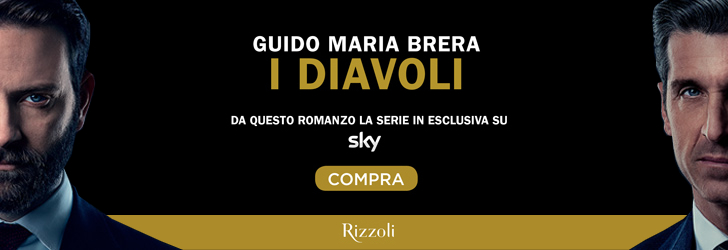
Decodificare il presente, raccontare il futuro
PROFILI
lun 6 luglio 2020
RETURN OF THE EMPIRE. BREXIT VOL.4, AN INTERVIEW WITH PAUL MASON
Born into a working class family in the north of England, Paul Mason has a profound knowledge of those depressed areas, of that “red wall” that has crumbled before the advance of nationalist-conservative xenophobia. This is why he has been an invaluable guide in the journey that The Devils have made during the electoral week, set to change the destinies of Europe. The last stage could not be anything other than a chat with him.
Journalist and essayist, Paul Mason is one of the most influential and respected figures of the British left. He started working for the BBC, then moved on to Channel 4 and now writes for “The Guardian”. His most internationally renowned books include Why It’s Kicking Off Everywhere: The New Global Revolutions (2011, Verso) on the riots that have shaken the planet, from the Occupy movement to the Arab Springs and the riots that burned down the British summer. And, of course, Postcapitalism: a guide to the future (2015), on the relationship between technological development and capitalist economy, and Clear Bright Future: A Radical Defence of the Human Being (2019).
Born into a working class family in the north of England, precisely in Leigh, Lancashire, Paul Mason has a profound knowledge of those depressed areas, of that “red wall” that has crumbled before the advance of nationalist-conservative xenophobia. This is why he has been an invaluable guide in the journey that The Devils have made during the electoral week, set to change the destinies of Europe. The last stage could not be anything other than a chat with him.
Hi Paul, how do you explain what happened? Shall we start by analysing how much Brexit may have affected the British elections?
The British left found itself in a trap from which it could not get out. The majority of people, certainly the majority of progressive voters, wanted to stop Brexit. Labour had a chance to stop it in Parliament, and get a second referendum, and they fought for it. But this meant that some 800,000 voters from the working class of small towns, often elderly, turned their backs on it by choosing the Tories. And, given the peculiar British electoral system, where 800,000 votes are enough to turn a triumph into a disaster and vice versa, it went very badly.
On top of that, it should be noted that, since it took Corbyn six months to reach the decision to call for a second referendum on Brexit, the Labour lost about 1.6 million votes — which went to the Lib Dems, the Greens and the SNP, all strongly oriented towards remain.
Beyond the Brexit, the media interference, the overturning of common discourse and the false representation of party programmes and their leaders, can we say that the British had a choice between socialism and fascism in front of them, and they chose the latter?
They chose a form of territorial identitarian idea, a “nativism” which is a combination of nationalism and xenophobia. The biggest concern for voters in small towns was that there were too many foreigners queuing up in front of them at the GP and in hospitals.
Labour’s proposals — increased spending on public health, recruitment of more staff, and so on — were not enough to convince them. Nor did the demonstration that it was austerity that brought the waiting lists to the emergency services beyond four hours, do any good either. For these intimately reactionary people, it is never the fault of those in power. Indeed, it will always be about the Roma girl waiting for the doctor next to them.
Speaking of the previous definition of “nativist” voters, do you think it is correct to call this strange mix of austerity, racism and neoliberal policies that has won hearts and minds across the ocean as fascism?
The Tories have forced us to swallow nine long years of terrible austerity policies, but in this election campaign they have promised to end the cuts and to begin a season of public spending to be allocated to health, education and security. Whether they do it or not, remains to be seen. I would define all this kind of nationalist and neoliberal policies — all aimed at total deregulation, in the face of any kind of international agreement — which the Tories have in common with Trump and Salvini, as: Thatcherism in a single nation.
What will happen now? What future do you see for the Kingdom and its Left?
The Labour Party will inevitably end up moving back to the centre again. In the end, what did most damage to Corbyn’s image were not his “too leftist” economic policies, but his siding with Russia in the Skripal case and his failure to eliminate any trace of anti-Semitism from Labour. All amplified by a very powerful press campaign against him and, for the first time, by the presence of the extreme right-wing dark net in the British elections.
With 32% of the votes cast, Labour is still one of the most successful Social Democratic parties in the end. And if the Brexit Party hadn’t deserted in the Tories’ constituencies, it could have won the elections with the same votes. But everything will start again from scratch. I predict an alliance with the centrist parties, then the next Labour leader will disrupt the party to free it from a whole series of people who Corbyn had put in charge, and who will take all the blame.
As for Scotland, on the other hand, I see a completely different future, a left-wing progressive and very cosmopolitan trajectory in its nationalism, which will lead it to leave the UK within the next ten years. For the rest, there will be Brexit, and it will be the end of all freedom of movement. At least for people, certainly not for capitals.
What will be the place of the UK in the international context, after Brexit?
The Tories speak of a “global Britain” which is nothing more than the code name for the construction of a second imperial phase. A financialised “British Empire”, moving away from Europe and heading straight for the Middle East and Asia. The big question that awaits us in the near future is this: will the Tories take the UK into Trump’s arms with the will to permanently dismantle the NATO, or will they instead ally themselves with France and its programme to turn NATO into a police organisation to conquer West Africa?
Whatever the solution, British hegemony is bound to wane, and this can also be seen in small everyday events, such as the attacks and violence against foreigners in the aftermath of the results of the Brexit referendum and the latest election results.

